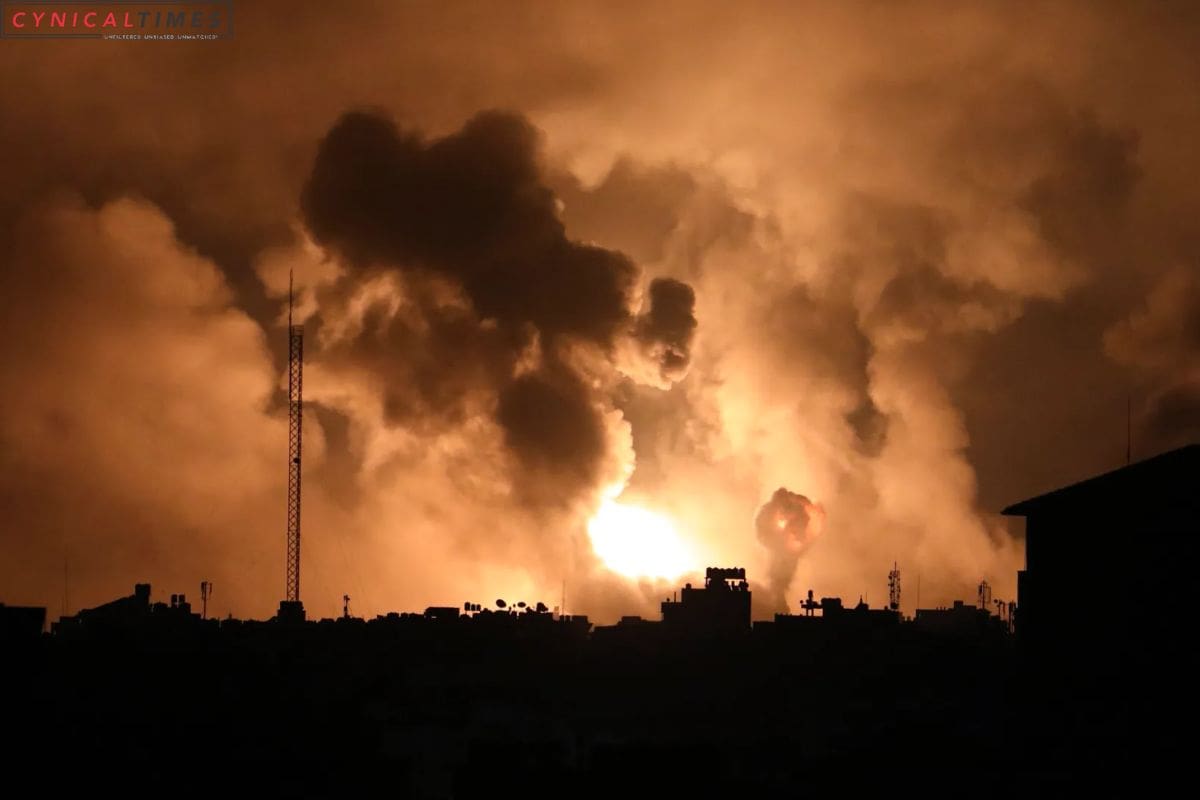Cautious Optimism in Oil Markets: Oil prices experienced another decline on Monday as global economic uncertainties took precedence over fears of regional conflict stemming from Israel’s military operations in Gaza.
Brent crude, the worldwide oil benchmark, saw a 1.2% drop, reaching $89 per barrel, while West Texas Intermediate (WTI) crude, the US benchmark, slipped 1.3%, trading at $84 per barrel as of 6.50 a.m. ET. In the previous week, Brent decreased by 1.8%, and WTI by 3.6%.
Susannah Streeter, Head of Money and Markets at Hargreaves Lansdown, pointed out that while “the risks of regional escalation remain a concern,” the ground offensive in Gaza was largely anticipated.
“Although supply concerns persist and support oil prices, worries about potential global economic slowdown and reduced demand have contributed to the fall in oil prices,” she noted.
Concerns regarding global economic growth were further highlighted when Germany, the largest economy in Europe, reported a contraction in its GDP for the third quarter, attributed to restrained consumer spending.
The World Bank has also cautioned that an escalation in the Gaza conflict could have significant implications for global commodity markets, including oil. It outlined three scenarios in which oil prices might surge. Indermit Gill, the lender’s Chief Economist, emphasized the need for vigilance among policymakers. He stated, “If the conflict were to escalate, the global economy would face a dual energy shock for the first time in decades not only from the war in Ukraine but also from the Middle East.” According to the World Bank’s Commodity Markets Outlook, global oil prices are expected to average $90 a barrel in the fourth quarter before decreasing to an average of $81 a barrel next year as global economic growth decelerates.
However, in a worst-case scenario where the conflict escalates and disrupts oil supplies, prices could potentially surge by up to 75%, reaching $157 a barrel. Such a disruption would be comparable to the impact of the Arab oil embargo in 1973.


Also Read: Southwest Airlines Enhances Connectivity with Orlando-San José Route
Brent prices have risen by 5.7% since the October 7th attack by Hamas on Israel, resulting in the loss of over 1,400 lives, primarily civilians.
Tensions in the region have escalated since Saturday, following Israel’s intensified ground operation in Gaza, which came after weeks of aerial strikes on the Hamas-controlled territory. Israeli Prime Minister Benjamin Netanyahu stated on Sunday that the country was prepared for a “long and difficult war.” Jake Sullivan, the US National Security Adviser, expressed concerns about the “elevated risk” of the conflict spreading to other parts of the region in an interview with CBS.
Iranian President Ebrahim Raisi also reacted on Sunday, asserting that Israel’s offensive had “crossed the red lines” and could necessitate action from multiple parties. Iran is a key player in the region and is aligned with both Hamas and Hezbollah, a Lebanese militant group involved in recent exchanges of fire with Israel.
It’s worth noting that Iran has denied involvement in the October 7th assault by Hamas in Israel. Initial US intelligence suggests that Tehran was caught off guard by the attacks.
Our Reader’s Queries
What is the oil outlook for 2023?
The IEA’s report indicates a slowdown in demand, with a reduction in its forecast for oil demand growth in 2023 by 90,000 bpd to 2.3 million bpd. China is responsible for 80% of the global rise in demand this year.
How does speculation affect oil prices?
The anticipation of a surge in oil demand in the future can lead to a significant rise in oil prices in the present. This is because both speculators and hedgers tend to purchase oil futures contracts. By doing so, they can benefit from the expected increase in demand and secure their future supply. As a result, the current oil prices can be influenced by the mere belief of a future demand surge.
What is the commodities outlook for 2024?
The World Bank predicts a 4% decrease in the commodity price index for 2024, after a steep 24% decline in 2023, which was the most significant drop since the pandemic began. Energy prices are also expected to decrease by almost 5% in 2024, but they should remain relatively stable in 2025.
Why are oil stocks so volatile?
Events like these can cause disruptions or uncertainty about future supply and demand, leading to increased price volatility. The inelasticity of both supply and demand in the short term is what makes oil prices inherently volatile.

